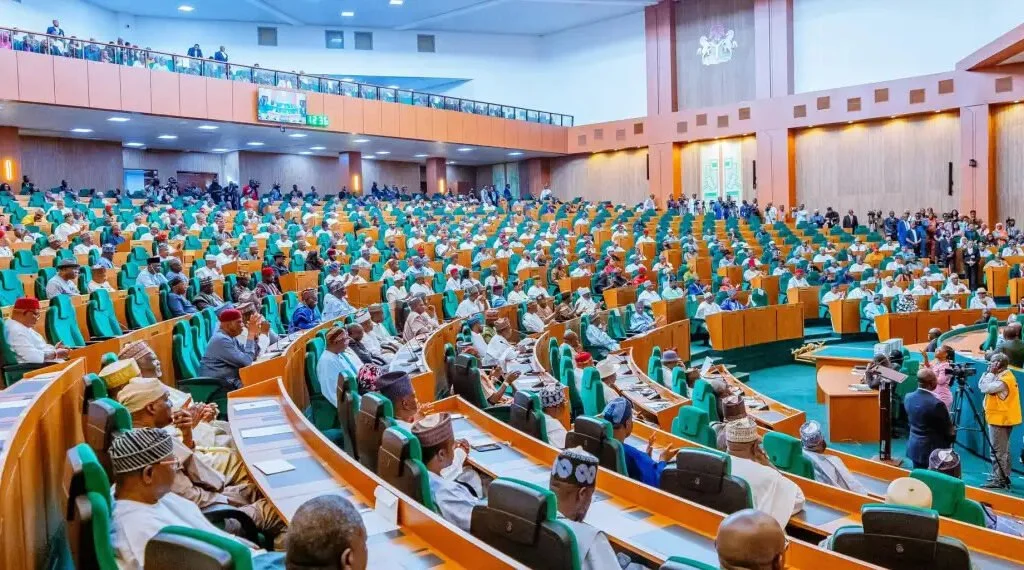President Bola Tinubu has urged state governors to deepen collaboration with the Federal Government to ensure that the economic reforms currently underway translate into tangible benefits for Nigerians at the grassroots level.
This charge was the highlight of deliberations at Thursday’s National Economic Council (NEC) meeting, held at the Presidential Villa in Abuja and presided over by Vice President Kashim Shettima.
Briefing State House Correspondents after the meeting, Imo State Governor and Chairman of the Progressive Governors’ Forum, Senator Hope Uzodimma, said President Tinubu’s intervention brought renewed focus and momentum to the council’s development agenda.
According to Uzodimma, the President acknowledged improved government revenue, driven by key reforms, but emphasised that the true test is in delivering tangible impact to communities across the nation.
“We acknowledged Mr. President’s efforts in driving increased revenue generation and the positive results already being recorded,” he said.
“But the real challenge now is how this additional income will improve the lives of people at the grassroots.”
In response, President Tinubu launched the Renewed Hope Ward-Based Development Programme, a new initiative aimed at fostering inclusive development across Nigeria’s 8,809 political wards.
Governor Uzodimma explained that the programme is designed to decentralise development, empower local communities, promote entrepreneurship, and generate jobs directly within local economies.
Minister of Budget and Economic Planning, Senator Atiku Bagudu, who also briefed the press, stated that the council unanimously adopted the initiative as a tripartite framework involving federal, state, and local governments.
“The programme will target at least 1,000 economically active individuals per ward,” Bagudu explained.
“It will channel resources to promote productivity, reduce poverty, enhance security, and unlock community-level growth.”
The programme, he added, will be led by the Ministry of Budget and Economic Planning, which will act as its national secretariat. Implementation will be supported by increased revenues in the Federation Account, with other funding options being explored.
Bagudu described the initiative as a “historic step” in localising economic transformation, in keeping with President Tinubu’s directive to “cascade reform dividends down to the grassroots.”
He also referenced the 2025 IMF Article IV Consultation Report, which commended Nigeria’s recent fiscal and monetary reforms, including the removal of fuel subsidies, exchange rate unification, and enhanced revenue collection, as vital steps that have stabilised the economy.
According to him, the next phase must focus on grassroots investment and human capital development.
Governor Uzodimma also disclosed that the President expressed concern about environmental challenges threatening key infrastructure, particularly the Lagos-Calabar Coastal Highway.
Tinubu called for greater coordination between federal and state agencies to prevent disruptions.
A harmonisation committee has been suggested, including the Minister of Environment, the Surveyor-General of the Federation, and representatives from the states, to address such coordination gaps.
“Mr. President’s briefing today strengthened our morale and gave clear direction. The emphasis is now on translating reforms into visible change at the community level,” Uzodimma said.
In a related development, NEC deliberated on Nigeria’s increasing vulnerability to climate-related disasters, particularly floods and extreme weather events.
Minister of Finance and Coordinating Minister of the Economy, Wale Edun, stated that the council has directed state governments to strengthen their emergency response systems as part of the 2025 national disaster preparedness plan.
The meeting featured a presentation by the Director General of the National Emergency Management Agency (NEMA), who unveiled the new National Disaster Relief and Response Strategy and Action Plan (2024–2027), developed in collaboration with the United Nations Development Programme (UNDP).
Key updates from NEMA included a nationwide hazard and risk analysis in partnership with UNICEF; Memoranda of Understanding with security and humanitarian agencies, including the Police, NSCDC, and Red Cross; Collaboration with six universities offering disaster risk management courses; Activation of Emergency Operations Centres across all states since May 29; and Pre-positioning of emergency equipment in high-risk states.
Edun also noted NEMA’s expanded public outreach campaign, aimed at increasing community awareness and early warning.
However, he identified persistent challenges, including: Poor drainage infrastructure, Delayed data sharing from states, Security issues in vulnerable areas, and Weak enforcement of planning laws and building codes.
“Disaster management is a shared responsibility,” Edun said.
“States must empower their emergency agencies, establish local response committees, and enforce planning and environmental laws.”
He confirmed that NEC had approved continued federal funding support for the Ministries of Water Resources, Environment, Budget and Economic Planning, and NEMA.
States and the FCT will also receive allocations to bolster flood preparedness.
“Just like last year, we’ve been mandated to provide tangible funding to support flood prevention and response strategies,” he added.






